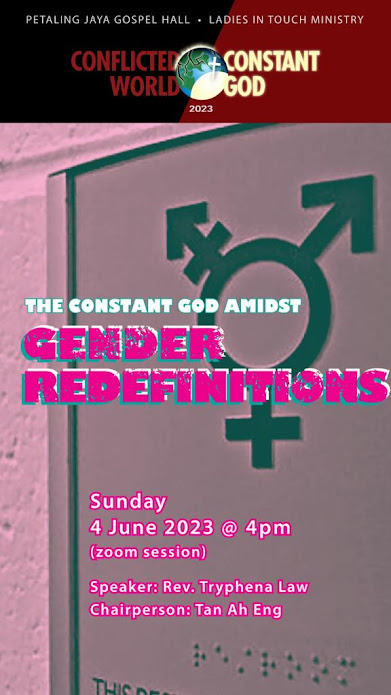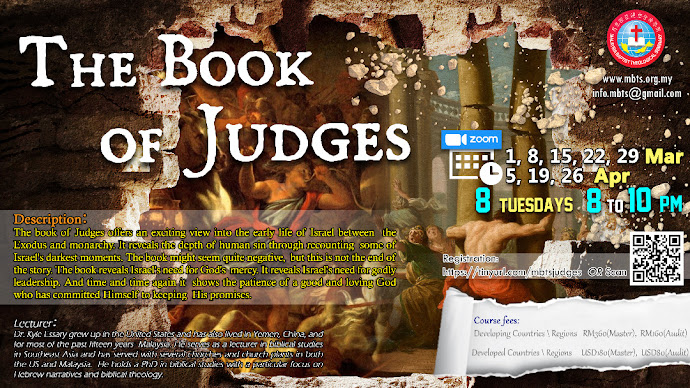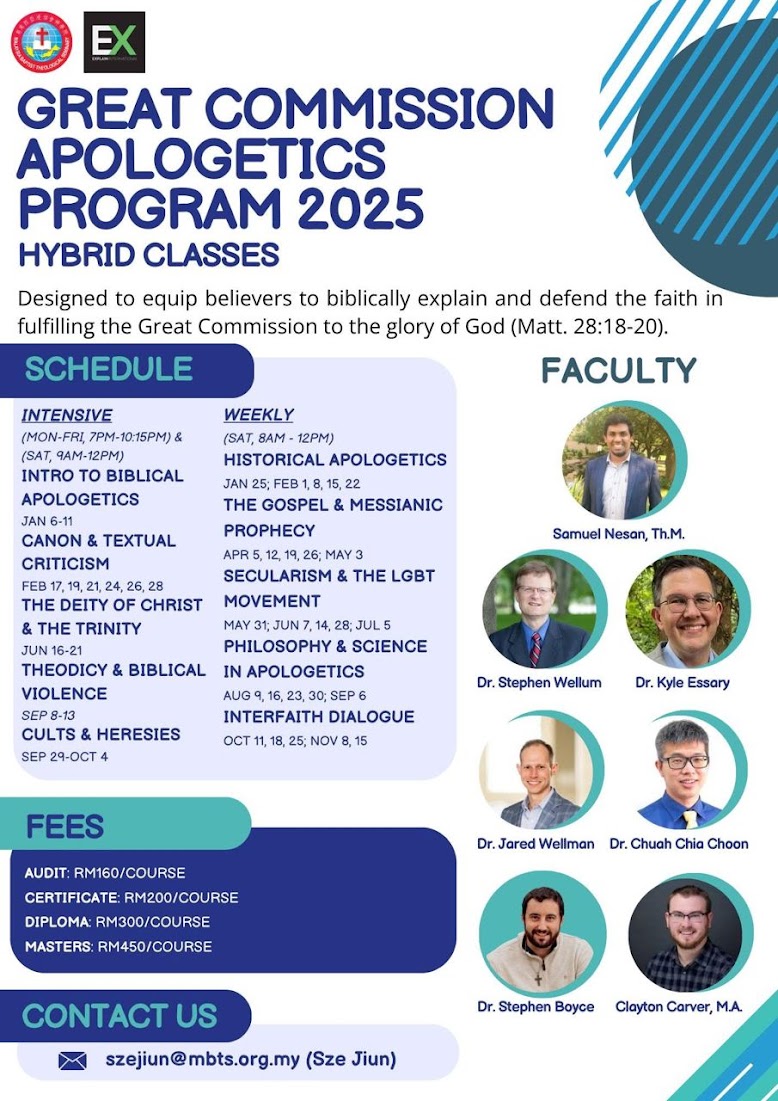WHY A THEOLOGICAL EDUCATION IS IMPORTANT FOR THE MARKETPLACE MEN AND WOMEN
A former seminary lecturer, Dr Philip Koh, upon reading this blog post, wrote me a short message on whatsapp:
Stephen, your essay insisting on a right understanding of the literary genre of Revelation is lucid in expression, succinct in form, and systematic in presentation. I too wrote a lot of theological essays... which led to the cultivation of the higher order thinking skills of Benjamin Bloom's taxonomy of cognitive learning outcomes.Dr Koh is right. In fact, after embarking on my pursuit of a theological education in two seminaries(1), this is one thing that I can testify to: it has helped me to crystallize my thinking as I put my thoughts in writing.
In a follow up message, he wrote:
As l had to grapple with different and often dialectically opposite theological positions on the Second Coming of Jesus or the Millenial kingdom of Jesus on this earth.
Theological education not only trains a person in how to engage in abstract philosophical and theological reasoning, but also how to systematise our thoughts coherently.
At the end of the day, we need to be able to provide biblical and rational evidences on why we hold a particular theological position....
What I Enjoyed the Most
One of the things that I was always looking forward to in my journey was the assignments.
I never leave it to the last minute to complete my assignments. That's because, from young, I had always wanted to have a 'goyang kaki' (relaxing) lifestyle. By this, I mean, I rather finish all my assignments long before the deadline so that I do not have too many things on my plate and a cluttered mind. I have more time for myself.
The other reason is because I know that I am a lazy reader. Although I used to read a lot of good Christian books when I was in my teens, I am very much a writer than a reader. I rather do a research into a topic and write about it than to spend a few hours reading a book.
Therefore, in the last five years, I found myself looking up for the relevant pages in thick reference books to read as part of the research.
Since I love writing or expressing myself in the written words, doing a 3500-word assignment is never a problem. It also helps to build my self-confidence in the particular subject that I have decided to research into.
I have never been more greatly blessed than having to complete my assignments.
Vacuum
Having met all the requirements for my Master of Christian Ministry (MCM) as a part time student of theological education by extension (TEE), I now feel I am in a "vacuum" because I do not get the opportunity to do the assignment papers anymore.
My intention is to pursue a further education which can equip me to be a more effective servant of the Lord in the marketplace. Not every person who pursues a theological education will end up as a pastor.
Although I believe meeting the requirements for a Master of Divinity (MDiv) or Master of Theology (MTh) would not difficult for me, for now, this is the least of my priorities as it is beyond me to give up my secular work to spend another one or two years full time studying in a local seminary campus.
To me, the boast that MTh and MDiv is superior to MCM is a vanity of vanities and the debate that a Bachelor of Theology is more demanding than MCM is an absolute rubbish! I must admit that I do not mince my words (2), speaking as a marketplace person; hence, I never want to be addressed as a pastor because I am not called to be one.
To be honest, there is not much I can do with the paper qualification, as it will not pay me enough to sustain two growing up children. I have seen some older lecturers who can hardly survive on running just two modules part time in a year.
I may pursue the path of Doctor of Ministry instead, provided that the fees are not too high or I get a scholarship. This will further equip myself for the marketplace but the biggest reward is for me to be able to do research, write a dissertation, which I can later turn into a book to benefit more people.
The Downside
Nowadays, with the digital platforms, you will be able to attend the classes online from anywhere around the world, without having to brave traffic jams to get to class on time.
Although some of the younger ones tend to show an attitude of inflexibility, and to some extent, sheer arrogance, most of the older and wiser lecturers I have had all these five years are more amicable and gracious; they have been a great source of encouragement to my spiritual growth.
At the same time, I think seminaries should also consider scaling down on their huge capital expenditures on bigger buildings and all the expensive renovations and maintenance expenditures, unless student numbers can justify it without putting more burden on the churches (members' tithes and their hard-earned money).
Instead, they would do well if they focus on human capital development and building new strategies to remain relevant in the digital age where online learning will be the way to go.
With the stiff competition now coming from theological schools from overseas and local seminaries that are capable of offering their programmes online, student numbers will gradually drop unless the marketing strategies are now focused on attracting marketplace ministry people (or tentmakers) to equip themselves theologically.
As a whole, I would still recommend you to pursue your theological education part time, if you have no intentions to remain in the marketplace. The younger that you start, the more your knowledge can be useful to your marketplace ministry. There are so many well-known theological schools around the world that now offer their courses online.
This is also the reason why I created this blog to whet the appetite of other marketplace people like me. They can, and should consider to enrol themselves at least online with a theological school. If you need some guidance in choosing a programme or a seminary, please email me Stephen.Ng.EJ@gmail.com.
Footnotes:
(1) Due to some administrative weaknesses, I did a credit transfer which, although taking me an additional two years to complete, I have never regretted because I did not mind doing the assignments.
(2) By this, I mean I prefer to be myself than to try to put on a mask when I have to deal with people who brag their brand of education is more superior.




Comments
Post a Comment